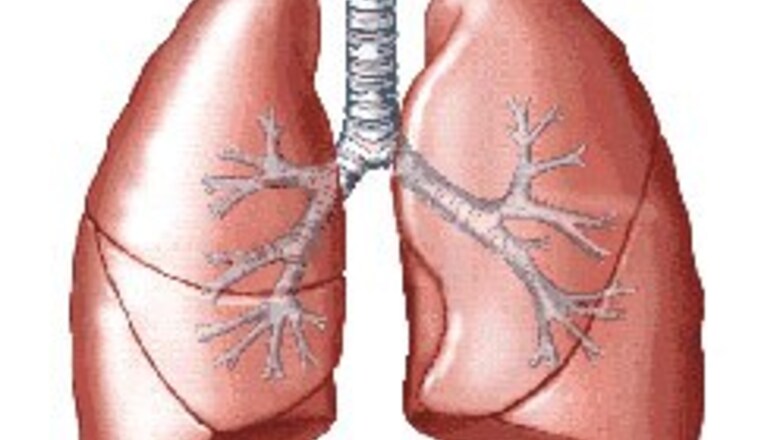
views
Washington: Lung cancer acts differently in women than in men, and major new studies are exploring if estrogen is a key reason and also whether harnessing the hormone might help fight the number one cancer killer.
The gender link may sound surprising. Surveys show breast cancer consistently tops the list while lung cancer is seldom mentioned, yet lung cancer is increasingly a women's problem.
It will claim more than 162,000 lives this year, 72,000 of them women. That is more women than are killed by breast, ovarian, uterine and cervical cancers combined.
While male deaths from lung cancer have been dropping since 1991, women's death rates are stubbornly holding steady.
Much of that difference is attributed to gender variations in smoking, lung cancer's main cause.
However, considering that women tend to get different kinds of lung cancer than men, it is unclear if they are at greater risk of developing the disease.
Research suggests that they may absorb more cancer-causing chemicals from cigarettes and become sick after smoking less.
Among people who never smoked, more women than men are diagnosed with lung cancer.
On the other hand, women tend to survive lung cancer slightly better than their male counterparts. And some of the newest lung cancer drugs, Tarceva and Iressa, seem to work more often in women.
Teasing out the biology behind the gender differences could lead to improved treatment for everyone, says lung cancer specialist at Loyola University Health System, Dr. Kathy Albain.
She is heading a National Cancer Institute-funded study that is recruiting 720 newly diagnosed lung cancer patients to examine what hormones, genes or other molecular factors explain why lung cancer behaves differently in men and women, smokers and nonsmokers.
"We're learning what's going on in the lung, and whether or not this is a real thing that can be exploited for cancer treatment," she says.
Estrogen already is a leading suspect. "We're just at the infancy" of exploring the hormone's role in lung cancer, cautions University of Pittsburgh pharmacologist Jill Siegfried, who is a pioneer in the field.
Two provocative studies are getting under way;
Siegfried's research suggests estrogen may act as a fuel for lung tumors just like it does for many breast tumors.
Blocking estrogen with the same drugs that breast cancer patients use might also work in the lungs.
A 120-patient study at Pittsburgh and the University of California, Los Angeles, will test whether women fare better when given the anti-estrogen drug Faslodex on top of the lung cancer drug Tarceva.
Why that combination?
Estrogen receptors, or docking ports, in lung tumors seem to switch on a cancer growth factor that Tarceva specifically targets.
The hope is to deal the tumor a double whammy by blocking both.
The second study, involving 600 women around the country, tests an experimental drug called Xyotax that may need estrogen to work.




















Comments
0 comment